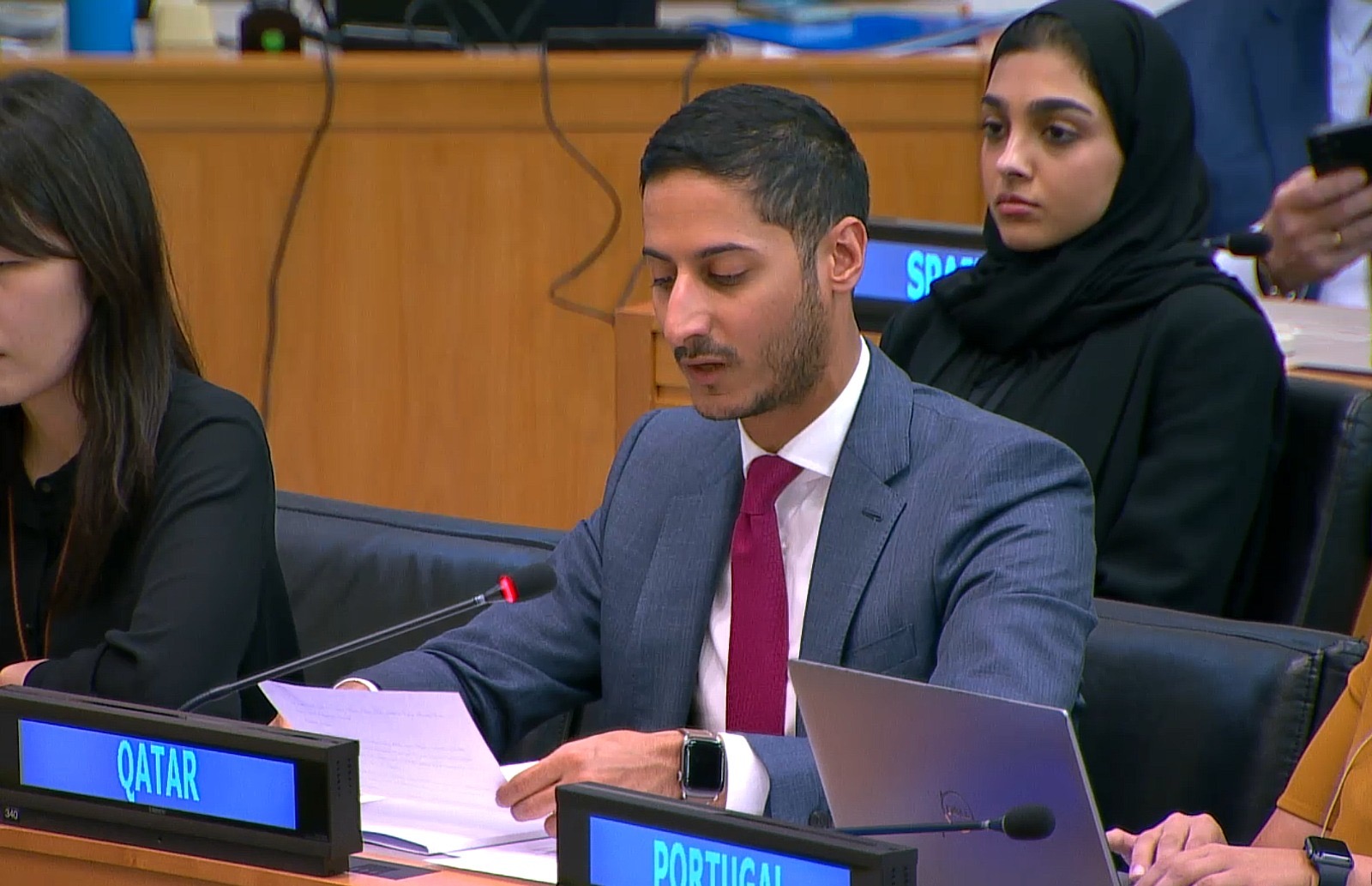Qatar Affirms Keenness to Strengthen International Partnerships through International Cooperation and Multilateral Action

New York| October 09, 2025
The State of Qatar affirmed its commitment to strengthening its international partnerships within the framework of international cooperation and multilateral action, and to support the efforts of developing countries in implementing and achieving the 2030 Agenda of the Sustainable Development Goals. This is achieved by directing partnerships with UN agencies to provide development and humanitarian assistance to countries facing development challenges and disasters beyond their capabilities, in addition to partnerships with the UN to implement the outcomes of the Doha Programme of Action for the Least Developed Countries (2022-2031).
This came in the State of Qatar's statement delivered by Second Secretary of Qatar's Permanent Mission to the UN Talal Abdulaziz Al Naama before the General Debate of the Second Committee during the 80th session of the UN General Assembly, at the UN headquarters in New York.
The Second Secretary of Qatar's Permanent Mission to the UN explained that developing countries face many challenges that hinder the implementation of the 2030 Agenda for Sustainable Development, noting that the world is witnessing wars and armed conflicts that have caused humanitarian disasters, displacement, and the destruction of infrastructure and livelihoods, in addition to the multiple risks to the lives of the most vulnerable groups. He added that the world is also witnessing the devastating effects of climate change and the resulting shocks and disasters that threaten the lives of millions of people. There are also economic challenges represented by the debt burden, scarcity of development financing, difficulty in borrowing, and the digital divide.
Al Naama added that the State of Qatar welcomed the adoption of General Assembly resolution 79/323, entitled the Sevillaآ Commitment, last August. This resolution affirmed the need to continue reforming international financing structures and improving their effectiveness and flexibility to address current and future challenges and crises, and to strengthen national efforts to achieve economic and social development by creating a favorable international economic environment and effective means of implementation that encourage comprehensive and sustainable economic growth, and to recognize the right to development so that no one is left behind.
He stressed that Qatar is making rapid strides in implementing Qatar National Vision 2030, noting the launch of its third phase at the beginning of 2024, which aims to build a diversified and sustainable knowledge-based economy, utilizing digital technology, science and innovation applications, strengthening infrastructure, increasing productivity and stimulating the business environment, with a focus on human development, caring for the family as the basic building block of society, expanding healthcare and social protection services, protecting the environment and building capacity to confront the effects of climate change.
Al Naama added that Qatar will host the Second World Summit for Social Development in November, providing an opportunity for high-level dialogue on accelerating the implementation of the 2030 Agenda. Qatar will also co-host with the Republic of Brazil the first meeting of the leaders of the Global Alliance against Hunger and Poverty as a key event on the sidelines of the summit.
He affirmed the State of Qatar's support for the UN Secretary-General's initiative to reform the international organization, and renewed support for the UN Resident Coordinator System for the 2025-2026 period with a total of $1 million, to improve the efficiency and effectiveness of operational activities at the country level and assist countries in implementing the 2030 Agenda for Sustainable Development.

